
Malabo Bay: The Heartbeat of Equatorial Guinea
Malabo Bay, located in the capital city of Malabo, is a shining gem nestled on the northern coast of Bioko Island in Equatorial Guinea. This picturesque bay is a blend of natural beauty and rich history, making it a must-visit for any traveler. The bay is surrounded by lush greenery and offers stunning views of the Atlantic Ocean, creating a serene environment perfect for relaxation and reflection. As you explore Malabo Bay, you'll find an array of colonial architecture that tells the story of the city’s past. The Spanish influence is evident in the beautifully preserved buildings that line the streets. A walk through these historic areas provides a glimpse into the cultural heritage of Equatorial Guinea. Don’t miss the Cathedral of Santa Isabel, an iconic landmark with its striking neo-Gothic design. The bay area is also a hub for local culture and activities. You can enjoy a leisurely stroll along the waterfront promenade, where local vendors sell handmade crafts and delicious street food. The vibrant market scene is a great place to interact with friendly locals and experience the authentic flavors of the region. For those interested in marine life, the clear waters of the bay offer opportunities for snorkeling and diving, revealing a colorful underwater world. Malabo Bay is not just about sightseeing; it’s also a gateway to adventure. Nearby, you can explore the lush rainforests and volcanic landscapes of Bioko Island. The island is home to diverse wildlife, including rare primates and exotic birds, making it a paradise for nature lovers. Whether you're seeking relaxation, cultural immersion, or outdoor adventure, Malabo Bay has something to offer every traveler.
Local tips in Malabo Bay
- Visit the Cathedral of Santa Isabel early in the morning to avoid crowds and enjoy the serene atmosphere.
- Bring local currency (CFA franc) as many vendors and smaller shops do not accept credit cards.
- Wear comfortable walking shoes for exploring the colonial streets and the waterfront promenade.
- Try the local street food, especially the grilled fish and plantains, for an authentic taste of Equatorial Guinea.
- Hire a local guide for a day trip to the nearby rainforests and volcanic sites for a deeper understanding of the area’s natural beauty.
Malabo Bay: The Heartbeat of Equatorial Guinea
Malabo Bay, located in the capital city of Malabo, is a shining gem nestled on the northern coast of Bioko Island in Equatorial Guinea. This picturesque bay is a blend of natural beauty and rich history, making it a must-visit for any traveler. The bay is surrounded by lush greenery and offers stunning views of the Atlantic Ocean, creating a serene environment perfect for relaxation and reflection. As you explore Malabo Bay, you'll find an array of colonial architecture that tells the story of the city’s past. The Spanish influence is evident in the beautifully preserved buildings that line the streets. A walk through these historic areas provides a glimpse into the cultural heritage of Equatorial Guinea. Don’t miss the Cathedral of Santa Isabel, an iconic landmark with its striking neo-Gothic design. The bay area is also a hub for local culture and activities. You can enjoy a leisurely stroll along the waterfront promenade, where local vendors sell handmade crafts and delicious street food. The vibrant market scene is a great place to interact with friendly locals and experience the authentic flavors of the region. For those interested in marine life, the clear waters of the bay offer opportunities for snorkeling and diving, revealing a colorful underwater world. Malabo Bay is not just about sightseeing; it’s also a gateway to adventure. Nearby, you can explore the lush rainforests and volcanic landscapes of Bioko Island. The island is home to diverse wildlife, including rare primates and exotic birds, making it a paradise for nature lovers. Whether you're seeking relaxation, cultural immersion, or outdoor adventure, Malabo Bay has something to offer every traveler.
When is the best time to go to Malabo Bay?
Iconic landmarks you can’t miss
ibis Malabo
Discover comfort and affordability at ibis Malabo, your gateway to the vibrant culture and natural beauty of Equatorial Guinea.

Hotel Anda China Malabo
Discover the charm of Malabo at Hotel Anda, your comfortable retreat in the heart of Equatorial Guinea's capital, blending hospitality and local culture.

Malabo International Airport
Experience the warmth of Equatorial Guinea at Malabo International Airport, your gateway to adventure and cultural richness in Central Africa.
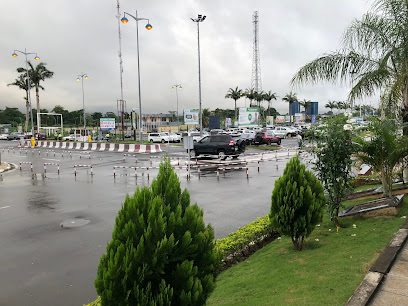
Parque Nacional de Malabo
Experience the breathtaking beauty and diverse wildlife of Parque Nacional de Malabo, a must-visit park in Equatorial Guinea.
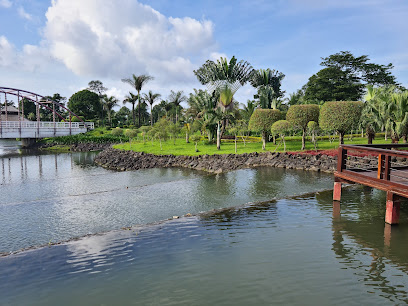
Magno Suites Exclusive Hotel & Restaurant
Experience luxury and comfort at Magno Suites Exclusive Hotel & Restaurant, the perfect getaway in Malabo, Equatorial Guinea.
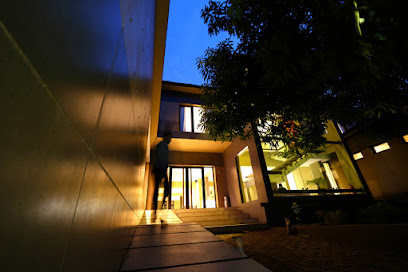
La Luna
Experience exquisite dining at La Luna in Malabo, where stunning views meet a culinary journey through local and international flavors.
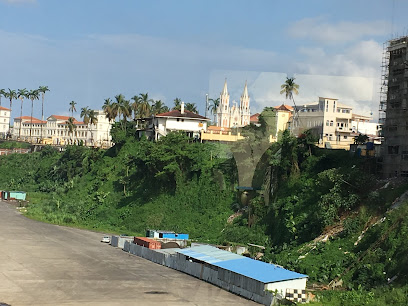
St. Elizabeth’s Cathedral
Discover the architectural beauty and spiritual significance of St. Elizabeth's Cathedral in Malabo, Equatorial Guinea - a must-see for every tourist.
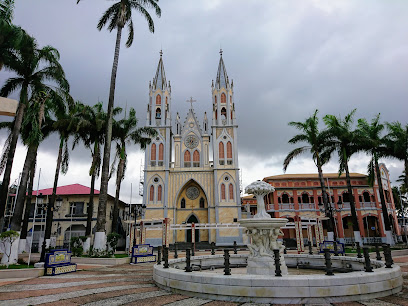
Rumbo Malabo
Explore Malabo and the breathtaking landscapes of Equatorial Guinea with Rumbo Malabo, your premier travel agency for adventure and discovery.
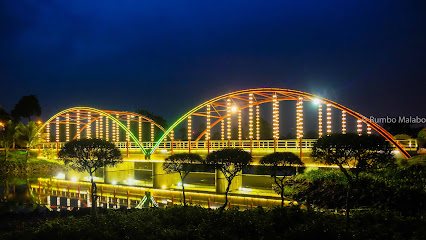
Malabo Stadium
Experience the thrill of sports at Malabo Stadium, a modern arena that embodies the vibrant spirit of Equatorial Guinea's capital.
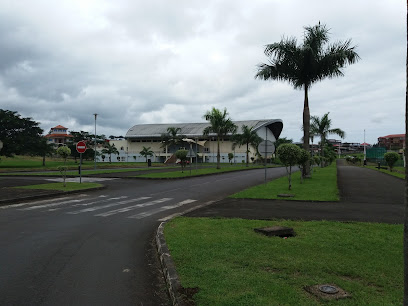
Finca Sampaka
Experience the tranquility of Finca Sampaka, a serene retreat in Malabo, blending nature's beauty with local culture for an unforgettable visit.
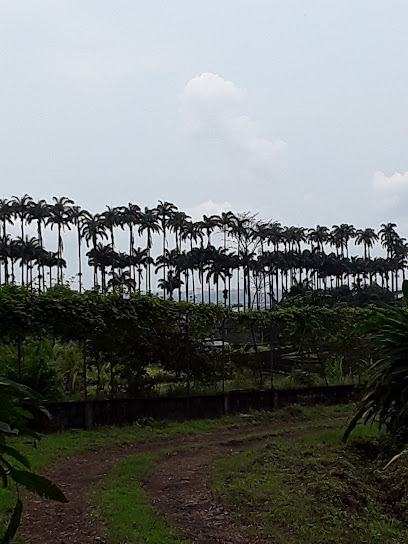
Port de Malabo
Explore Port de Malabo, the vibrant maritime gateway to Equatorial Guinea, where culture meets stunning coastal views and delicious local cuisine.
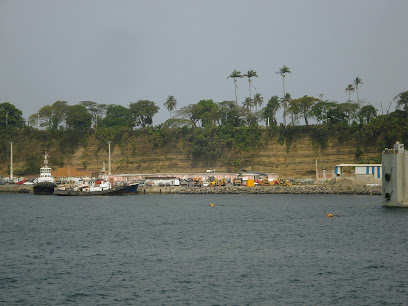
Antigua Plaza de Toros de Guinea Ecuatorial
Explore the Antigua Plaza de Toros in Malabo, a historical landmark that reflects the vibrant cultural heritage of Equatorial Guinea.
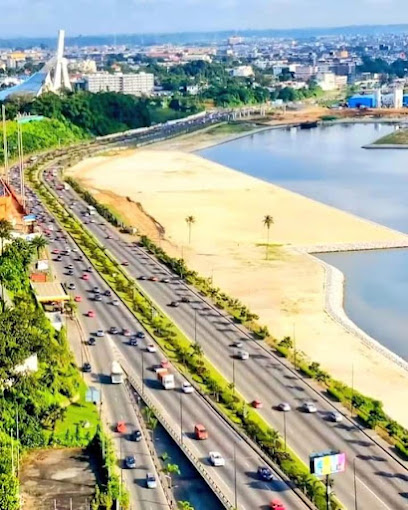
Equatorial Guinea
Explore the hidden treasures of Equatorial Guinea, from pristine beaches to rich wildlife and vibrant culture, ready to captivate every traveler.
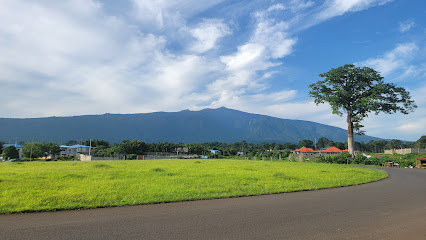
GUINEA VISTA
Explore Guinea Vista in Malabo, a corporate hub that showcases the dynamic business atmosphere of Equatorial Guinea's capital.
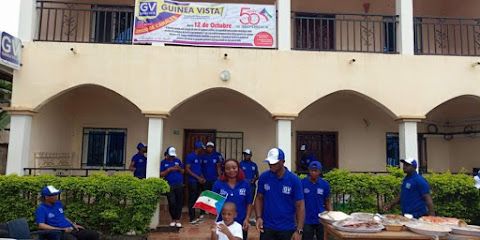
Plaza de Guinea Équatoriale
Explore the serene beauty and cultural essence of Plaza de Guinea Équatoriale in Malabo, a must-visit tourist attraction in Equatorial Guinea.
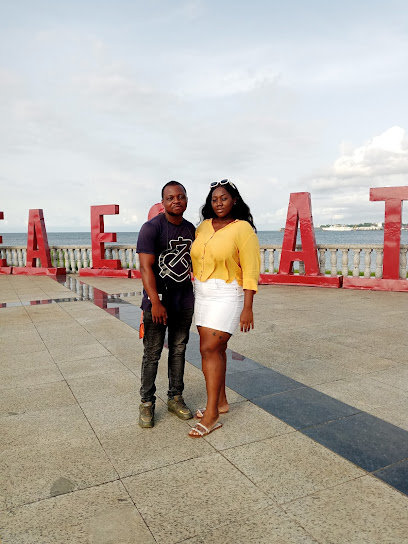
Unmissable attractions to see
Pico Basilé
Experience the breathtaking beauty of Pico Basilé, the highest peak in Equatorial Guinea, and immerse yourself in nature's untouched paradise.

Pico Basilé National Park
Unveil the natural wonders of Pico Basile National Park in Equatorial Guinea, a paradise for hikers, wildlife enthusiasts, and nature lovers alike.
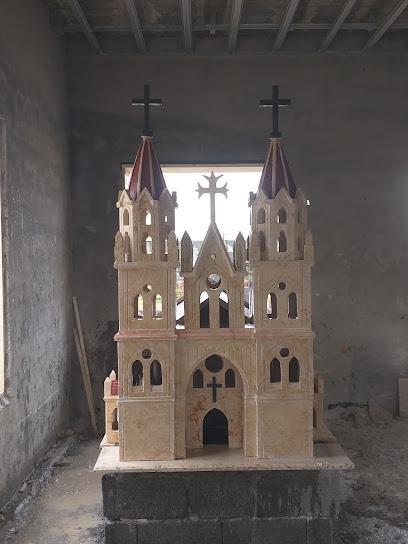
Essential places to dine
ibis Malabo
Discover comfort and convenience at ibis Malabo - your perfect base in Equatorial Guinea's vibrant capital.

Magno Suites Exclusive Hotel & Restaurant
Experience unparalleled luxury at Magno Suites Exclusive Hotel & Restaurant in Malabo—where comfort meets elegance amid Equatorial Guinea's vibrant culture.
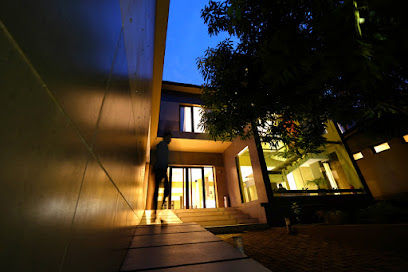
La Luna
Experience exquisite fine dining at La Luna, offering breathtaking views of Malabo's skyline and exceptional local cuisine.
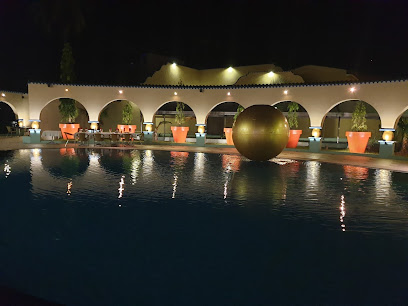
Bidji Binia
Savor authentic Italian flavors at Bidji Binia in Malabo—where every pizza tells a story.
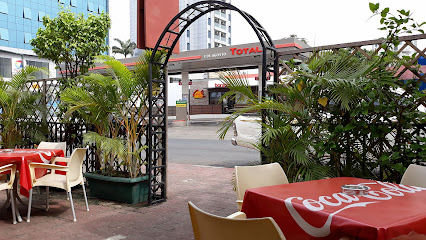
Aviator Pub and Café
Discover the vibrant flavors of America at Aviator Pub and Café in Malabo – your go-to spot for great food, live music, and unforgettable nights.
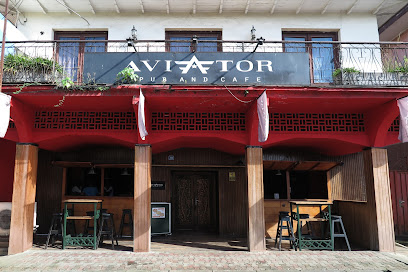
L'Atelier
Discover L'Atelier in Malabo: where local flavors meet international cuisine in an inviting atmosphere perfect for any occasion.
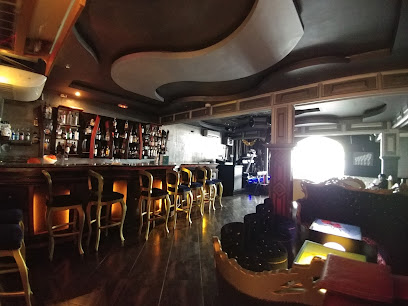
Café Malabo
Experience the vibrant flavors of Equatorial Guinea at Café Malabo – where every sip and bite tells a story.
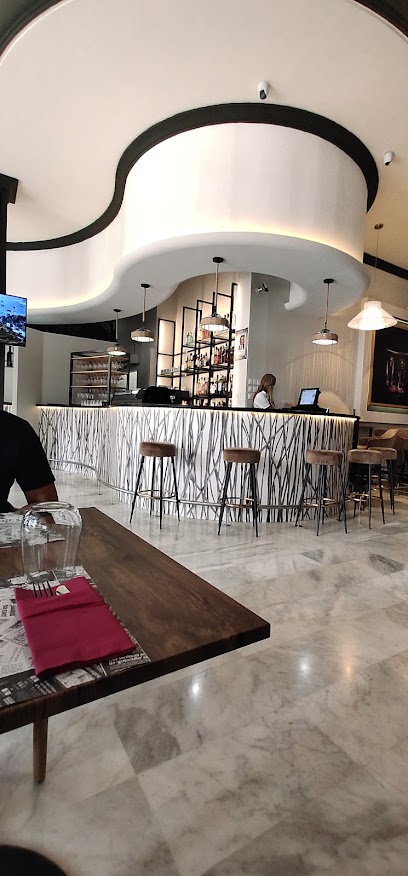
Hotel Bahia II
Discover tranquility at Hotel Bahia II in Malabo - your gateway to Equatorial Guinea's stunning landscapes and rich culture.

Restaurante Imagine
Discover exquisite flavors at Restaurante Imagine in Malabo, where local cuisine meets international flair for an unforgettable dining experience.
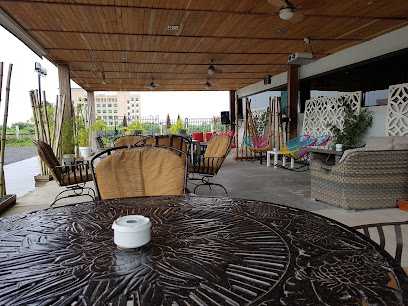
El Rancho Restaurant
Experience authentic Equatorial Guinean cuisine at El Rancho Restaurant in Malabo, where every meal tells a story.
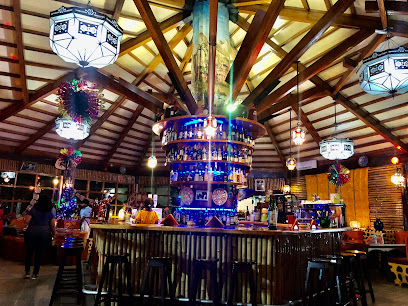
Olympus Skybar
Experience breathtaking views and exquisite cuisine at Olympus Skybar in Malabo - where every meal becomes an unforgettable occasion.
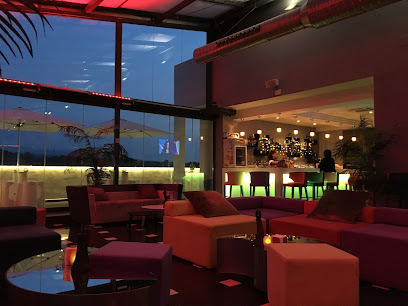
Restaurante Kalytero
Experience authentic Mediterranean flavors at Restaurante Kalytero in Malabo, where culinary excellence meets breathtaking coastal views.
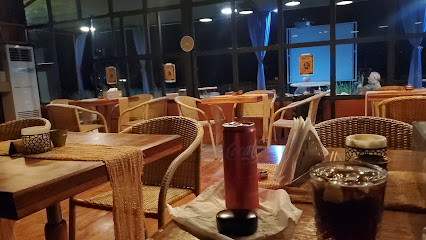
Galambo - Comida Rápida - Edificio Muankaban
Experience the vibrant flavors of Equatorial Guinea at Galambo - Comida Rápida in Malabo, where fast food meets local tradition.
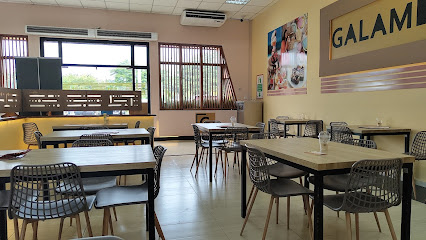
Lucy - Ethiopian Restaurant
Savor authentic Ethiopian cuisine at Lucy - a cultural culinary gem in Malabo offering traditional dishes and warm hospitality.
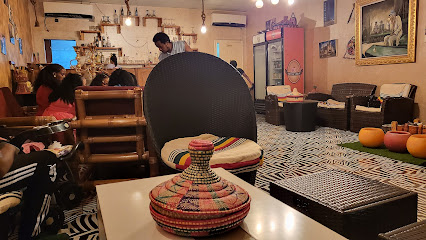
IMANI LOUNGE MALABO
Discover culinary delights at IMANI LOUNGE MALABO – where local flavors meet international flair in a vibrant atmosphere.
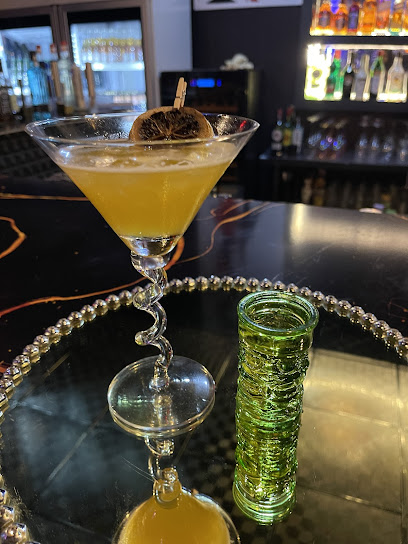
Markets, malls and hidden boutiques
ibis Malabo
Discover the perfect blend of comfort and modernity at ibis Malabo, your gateway to the beauty of Equatorial Guinea.

Unicasa
Discover the ultimate beauty experience at Unicasa in Malabo, where quality meets convenience in health and beauty products.
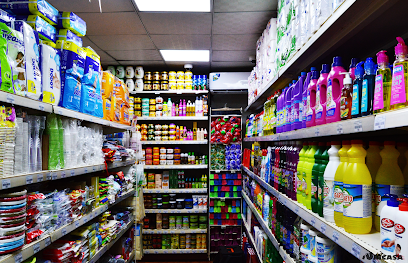
Rumbo Malabo
Experience the adventure of a lifetime with Rumbo Malabo, your expert travel agency for exploring the beauty of Equatorial Guinea.
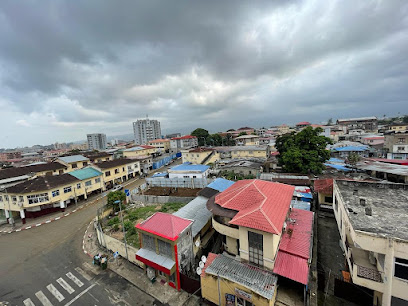
SEMU Mercado
Experience the heart of Malabo at SEMU Mercado, where local culture, vibrant goods, and delicious cuisine come together for an unforgettable market adventure.
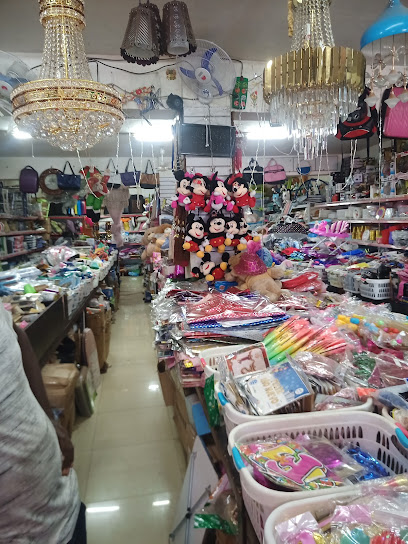
Supermercado Martínez Hermanos - Edificio Muankaban
Explore the vibrant flavors of Equatorial Guinea at Supermercado Martínez Hermanos in Malabo - Your gateway to local delicacies and fresh produce.
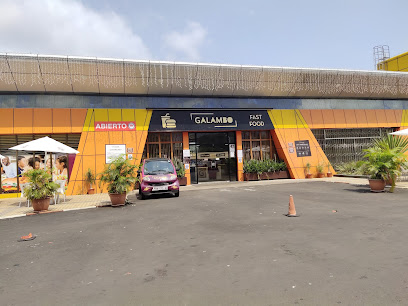
Supermercado Martínez Hermanos
Explore authentic Equatorial Guinean flavors at Supermercado Martínez Hermanos in Malabo - your gateway to local culinary treasures.

Shopping Place
Explore the vibrant shopping scene in Malabo, where local crafts meet international brands in a lively cultural atmosphere.

Becker shop
Discover Becker Shop, a charming used book store filled with literary treasures and a cozy atmosphere perfect for book lovers.

E.T.T. new generation
Discover E.T.T. New Generation, the ultimate hotel supply store offering quality essentials for an unparalleled hospitality experience.

Essential bars & hidden hideouts
La Luna
Discover the exquisite flavors and stunning views at La Luna, the finest dining experience in Malabo, Equatorial Guinea.
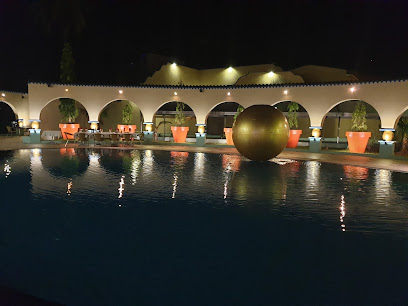
Bidji Binia
Experience the best of Malabo at Bidji Binia, where delicious pizzas meet a warm, inviting atmosphere, perfect for every occasion.
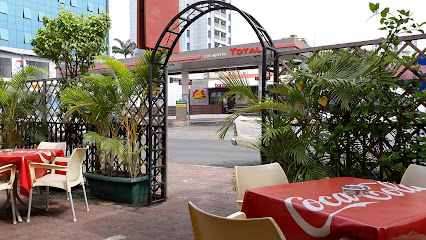
Aviator Pub and Café
Experience the vibrant heart of Malabo at Aviator Pub and Café, where American flavors meet live music and lively nightlife.
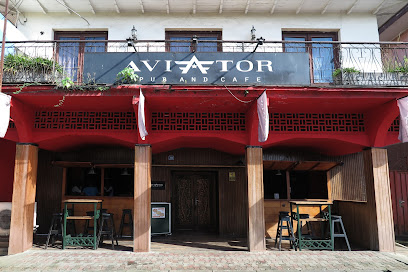
L'Atelier
Experience the best of Equatorial Guinean and international cuisine at L'Atelier, a must-visit restaurant in Malabo, offering a unique dining experience.
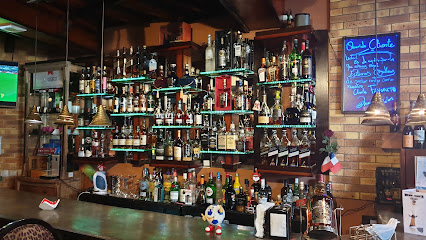
Café Malabo
Experience the vibrant culture and flavors of Equatorial Guinea at Café Malabo, your go-to spot for local delicacies and refreshing drinks.
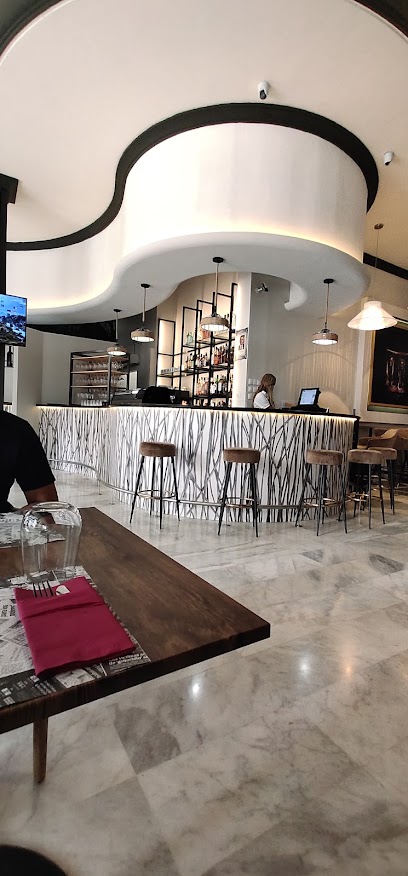
Restaurante Imagine
Experience the authentic flavors of Equatorial Guinea at Restaurante Imagine, a culinary gem in Malabo offering diverse traditional dishes and a vibrant atmosphere.
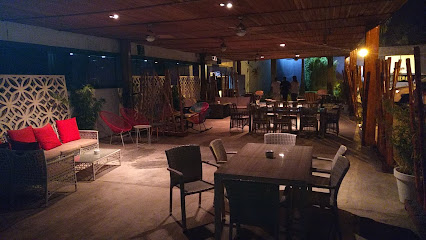
El Rancho Restaurant
Experience the flavors of Equatorial Guinea at El Rancho Restaurant in Malabo, where local cuisine meets warm hospitality.
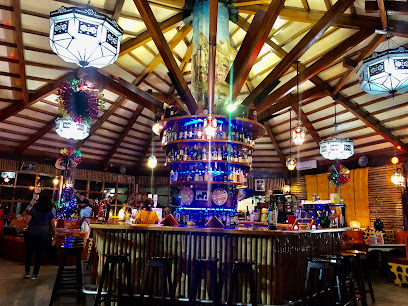
Olympus Skybar
Experience breathtaking views and vibrant nightlife at Olympus Skybar in Malabo, a must-visit destination for tourists seeking elegance and relaxation.
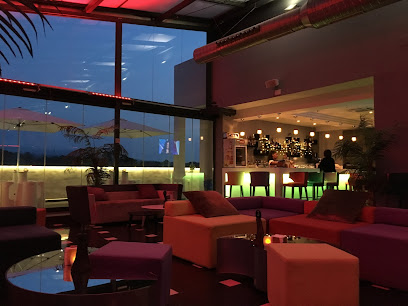
Restaurante Kalytero
Discover exquisite Mediterranean flavors at Restaurante Kalytero in Malabo, where culinary excellence meets warm hospitality.
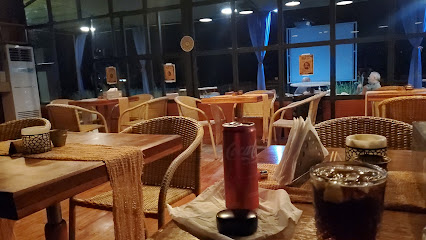
Café Malabo Sampaka
Discover the charm of Equatorial Guinea at Café Malabo Sampaka, a cozy bar in Zaragoza de Sampoca with delightful local drinks and friendly vibes.
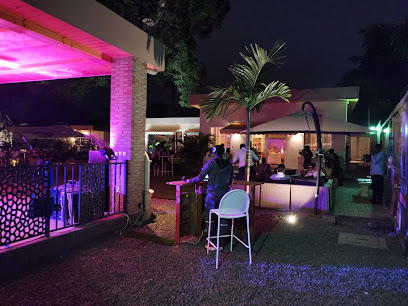
SAKOGE SL
Discover the vibrant atmosphere at SAKOGE SL, a must-visit bar in Malabo, offering a delightful selection of drinks and local charm.
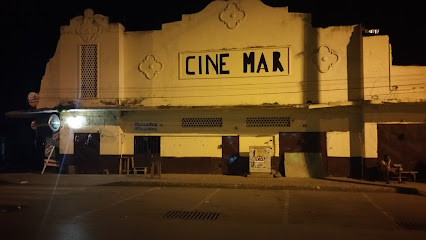
IMANI LOUNGE MALABO
Discover the vibrant Imani Lounge in Malabo, where local flavors meet a lively atmosphere for an unforgettable dining experience.
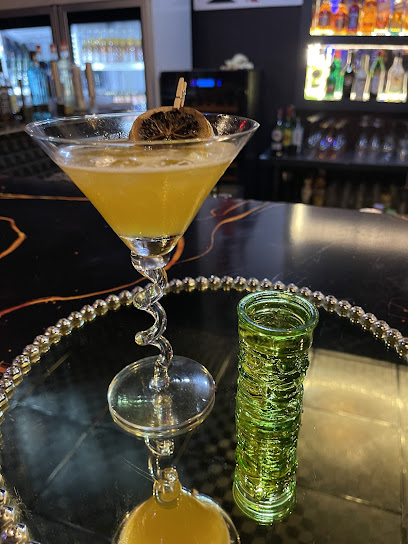
Utopía Malabo - Restaurante - Lounge - Sala de Eventos
Experience the vibrant atmosphere and exquisite flavors at Utopía Malabo - the premier lounge and restaurant in Equatorial Guinea.
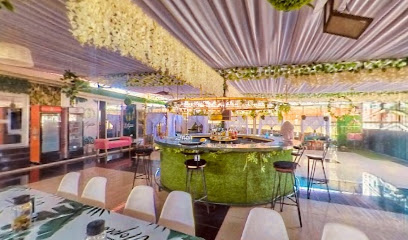
Cafe Kristania
Discover the flavors of Equatorial Guinea at Café Kristania, a vibrant restaurant in Malabo offering local dishes and a welcoming atmosphere.
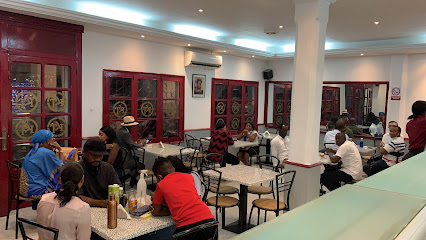
Vicatana,Malabo, Guinea Ecuatorial
Discover Vicatana in Malabo: A cozy lounge offering local flavors and a relaxing atmosphere for tourists exploring Equatorial Guinea.

Local Phrases about Malabo Bay
-
- HelloMbolo
[mbo-lo] - GoodbyeAdios
[a-dyos] - YesEyo
[e-yo] - NoTé
[te] - Please/You're welcomePor favor
[por fa-vor] - Thank youGracias
[gra-cias] - Excuse me/SorryDisculpa
[dis-cul-pa] - How are you?Añong
[an-yong] - Fine. And you?Meka. Y wo?
[me-ka. ee wo] - Do you speak English?Boñe abla Ingles?
[bo-nye a-bla in-gles] - I don't understandBoñe abla Ingles?
[bo-nye a-bla in-gles]
- HelloMbolo
-
- I'd like to see the menu, pleaseNga ne aten mwono, por favor
[nga ne a-ten mwo-no, por fa-vor] - I don't eat meatBoñe ne afa asu
[bo-nye ne a-fa a-su] - Cheers!Salud!
[sa-lud] - I would like to pay, pleaseNga ne ane ne ane, por favor
[nga ne a-ne ne a-ne, por fa-vor]
- I'd like to see the menu, pleaseNga ne aten mwono, por favor
-
- Help!Ayuda!
[a-yu-da] - Go away!Bai!
[ba-i] - Call the Police!Llama a la policía!
[ya-ma a la po-li-ci-a] - Call a doctor!Llama a un médico!
[ya-ma a un me-di-co] - I'm lostNga ane ngon anga
[nga a-ne ngon an-ga] - I'm illNga ane aña
[nga a-ne an-ya]
- Help!Ayuda!
-
- I'd like to buy...Nga ne aboni...
[nga ne a-bo-ni] - I'm just lookingNga ne aña boni
[nga ne an-ya bo-ni] - How much is it?Nga ane minga?
[nga a-ne min-ga] - That's too expensiveNkó ne afa ane
[nko ne a-fa a-ne] - Can you lower the price?Boñe ane ne afi minga?
[bo-nye a-ne ne a-fi min-ga]
- I'd like to buy...Nga ne aboni...
-
- What time is it?Nga ane agu?
[nga a-ne a-gu] - It's one o'clockAnu ane mpolo
[a-nu a-ne mpo-lo] - Half past (10)Mpú
[m-pu] - Morningñongo
[nyon-go] - AfternoonAña
[an-ya] - EveningMbia
[m-bia] - YesterdayAña
[an-ya] - TodayMañongo
[man-yon-go] - TomorrowNtombo
[n-tom-bo] - 1Mpólo
[m-po-lo] - 2Mfú
[m-fu] - 3Mbwá
[m-bwa] - 4Mne
[m-ne] - 5Mnó
[m-no] - 6Mná
[m-na] - 7Mná
[m-na] - 8Mpókó
[m-po-ko] - 9Mkúm
[m-kum] - 10Mvúlú
[m-vu-lu]
- What time is it?Nga ane agu?
-
- Where's a/the...?O ndongwé...
[o ndong-we] - What's the address?Anu ane mpolo
[a-nu a-ne mpo-lo] - Can you show me (on the map)?Boñe ane ane aten (ene mabi)?
[bo-nye a-ne a-ne a-ten (e-ne ma-bi)] - When's the next (bus)?Anu ane nquá (ndongwé)?
[a-nu a-ne n-kwa (n-dong-we)] - A ticket (to ....)Nga ane nquá (ngué ....)
[nga a-ne n-kwa (ngu-e)]
- Where's a/the...?O ndongwé...
History of Malabo Bay
-
Before the arrival of European settlers, the region around Malabo Bay was inhabited by the Bubi people. They lived in small, scattered communities and were primarily engaged in agriculture, hunting, and fishing. The Bubi people have a rich cultural heritage that is still evident in some parts of the island today.
-
In the late 15th century, Portuguese explorers arrived at the island of Bioko, where Malabo Bay is located. The Portuguese named the island 'Formosa' and later 'Fernando Pó' after the navigator Fernão do Pó who is credited with its discovery. During this period, the island served as a waypoint for ships traveling to the Indian Ocean.
-
The Treaty of El Pardo in 1778 transferred control of Bioko Island, including Malabo Bay, to Spain. The Spanish established a settlement in the bay area, which they initially named Port Clarence and later renamed Santa Isabel. The town grew as a colonial administrative center and a hub for the region's trade.
-
During the 18th and early 19th centuries, Malabo Bay became a significant point in the transatlantic slave trade. The British established a base in the bay to combat the illegal trade as part of their efforts to suppress slavery. The town of Santa Isabel was used as a center for anti-slavery operations.
-
During World War II, Malabo Bay played a strategic role as a refueling and supply station for Allied forces. The island's position in the Gulf of Guinea made it an important location for controlling sea routes and monitoring German naval activities in the region.
-
Equatorial Guinea gained independence from Spain on October 12, 1968. Following independence, the capital city, formerly known as Santa Isabel, was renamed Malabo in honor of King Malabo I of the Bubi people. The city of Malabo, located on the edge of Malabo Bay, became the political and economic center of the newly independent nation.
-
Today, Malabo Bay is a vibrant area that reflects a mixture of colonial history and modern development. The bay is surrounded by historical buildings, bustling markets, and cultural landmarks. It serves as a focal point for tourism, offering visitors a glimpse into the rich history and diverse culture of Equatorial Guinea.
Malabo Bay Essentials
-
Malabo Bay is located in Equatorial Guinea, on the island of Bioko. The main entry point is Malabo International Airport (SSG), which receives international flights from Europe, Africa, and occasionally from other continents. From the airport, taxis and shuttle services are available to take you to Malabo Bay, which is about a 15-20 minute drive. Alternatively, you can arrive by sea, as there are ferry services connected to the mainland and other islands.
-
In Malabo Bay, taxis are the most common mode of transportation for tourists. They are relatively inexpensive, but it is advisable to agree on a fare before starting the journey. Car rentals are available for those who prefer to explore at their own pace. Public minibuses, known locally as 'colectivos,' are another option, though they can be crowded and less comfortable. Walking is feasible for short distances within Malabo Bay, especially in the city center.
-
The official currency of Equatorial Guinea is the Central African CFA Franc (XAF). Credit cards are accepted in major hotels, restaurants, and some shops, but it is advisable to carry cash for smaller establishments and local markets. ATMs are available in Malabo, but be sure to have enough cash on hand as they can sometimes be unreliable.
-
Malabo Bay is generally safe for tourists, but it is important to exercise caution. Petty crime, such as pickpocketing and bag snatching, can occur, particularly in crowded areas and markets. Avoid walking alone at night and be cautious in less populated areas. The neighborhoods of New Building and Ela Nguema have higher crime rates and should be avoided after dark.
-
In case of an emergency, dial 112 for immediate assistance. Malabo has several hospitals and clinics, such as La Paz Medical Center, which offers emergency services. It is highly recommended to have travel insurance that covers medical emergencies. For minor health issues, there are pharmacies in the city where you can purchase over-the-counter medications.
-
Fashion: Do dress modestly, especially when visiting religious sites. Avoid wearing revealing clothing. Religion: Do respect local customs and traditions. Always ask for permission before photographing people, especially in religious contexts. Public Transport: Do be respectful and patient, as public transport can be crowded. Don't eat or drink on public transport. Greetings: Do greet people with a handshake. A friendly 'Hola' or 'Buenos días' is a good way to start. Eating & Drinking: Do try local dishes such as 'sopa de pescado' (fish soup) and 'malamba' (local beer). Don’t refuse hospitality, as it is considered impolite.
-
To experience Malabo Bay like a local, visit the local markets where you can buy fresh produce and traditional crafts. Engage with locals, as they are often friendly and willing to share stories about their culture and history. Don't miss the opportunity to explore the Pico Basilé National Park for breathtaking views and unique flora and fauna. For a unique experience, attend a traditional 'bubi' dance performance.
Trending Landmarks in Malabo Bay
-
ibis Malabo
-
Hotel Anda China Malabo
-
Malabo International Airport
-
Parque Nacional de Malabo
-
Magno Suites Exclusive Hotel & Restaurant
-
La Luna
-
St. Elizabeth’s Cathedral
-
Rumbo Malabo
-
Malabo Stadium
-
Finca Sampaka
-
Port de Malabo
-
Antigua Plaza de Toros de Guinea Ecuatorial
-
Equatorial Guinea
-
GUINEA VISTA
-
Plaza de Guinea Équatoriale
Nearby Cities to Malabo Bay
-
Things To Do in Luba
-
Things To Do in Limbe
-
Things To Do in Buea
-
Things To Do in Tiko
-
Things To Do in Douala
-
Things To Do in Calabar
-
Things To Do in Edea
-
Things To Do in Kribi
-
Things To Do in Uyo
-
Things To Do in Nkongsamba
-
Things To Do in Port Harcourt
-
Things To Do in Mamfe
-
Things To Do in Dschang
-
Things To Do in Mbini
-
Things To Do in Owerri








